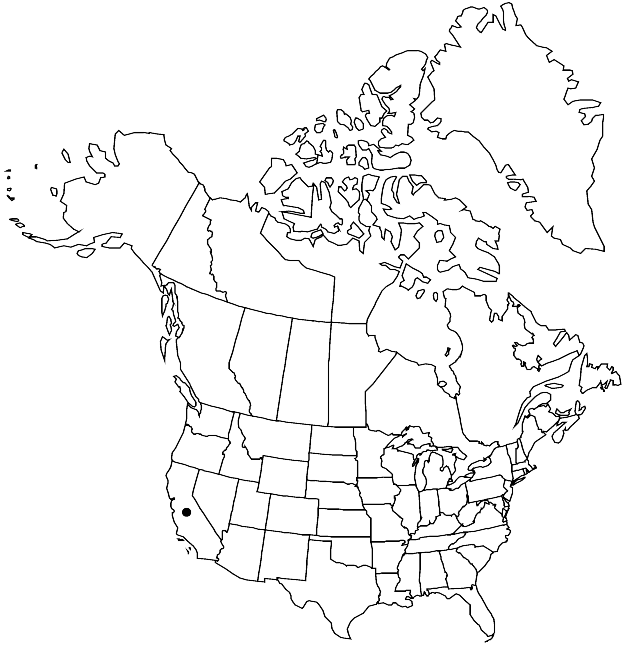Difference between revisions of "Streptanthus glandulosus subsp. sonomensis"
Novon 18: 280. 2008.
Basionym: Streptanthus glandulosus var. sonomensis Kruckeberg Madroño 14: 223. 1958
imported>Volume Importer |
imported>Volume Importer |
||
| Line 51: | Line 51: | ||
|publication year=2008 | |publication year=2008 | ||
|special status= | |special status= | ||
| − | |source xml=https:// | + | |source xml=https://bitbucket.org/aafc-mbb/fna-data-curation/src/2e0870ddd59836b60bcf96646a41e87ea5a5943a/coarse_grained_fna_xml/V7/V7_1239.xml |
|tribe=Brassicaceae tribe Thelypodieae | |tribe=Brassicaceae tribe Thelypodieae | ||
|genus=Streptanthus | |genus=Streptanthus | ||
Latest revision as of 22:31, 5 November 2020
Stems 2.3–7(–9) dm, moderately to densely hirsute proximally, glabrous distally. Cauline leaves: blade conduplicate distally, margins entire or denticulate, surfaces hirsute. Racemes secund; rachis straight. Fruiting pedicels 3–10 mm, sparsely pubescent or glabrous. Flowers: sepals cream or pale yellow, 5–6 mm, glabrous or sparsely pubescent; petals white (without purple veins), 10–17 mm; adaxial filaments 7–10 mm. Fruits spreading to slightly reflexed, arcuate; valves glabrous or sparsely pubescent. 2n = 28.
Phenology: Flowering May–Jul.
Habitat: Serpentine or Franciscan formation outcrops
Discussion
Of conservation concern.
Subspecies sonomensis is known from Sonoma County.
Selected References
None.
Lower Taxa
None.
